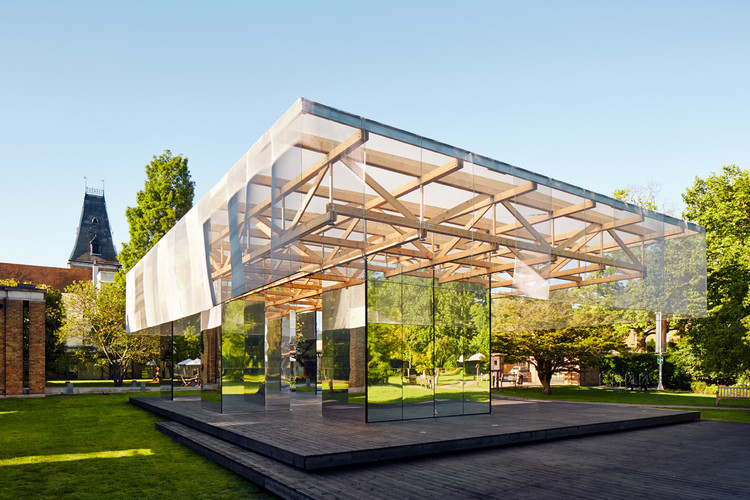
noun
- a light, usually open building used for shelter, concerts, exhibits, etc., as in a park or fair.
- any of a number of separate or attached buildings forming a hospital or the like.
- Architecture. a projecting element of a façade, used especially at the center or at each end and usually treated so as to suggest a tower.
- a tent, especially a large and elaborate one.
- a small, ornamental building in a garden.
- Also called base. Jewelry. the part of a cut gem below the girdle.
verb (used with object)
- to shelter in or as if in a pavilion.
- to furnish with pavilions.
noun
- British a building at a sports ground, esp a cricket pitch, in which players change
- a summerhouse or other decorative shelter
- a building or temporary structure, esp one that is open and ornamental, for housing exhibitions
- a large ornate tent, esp one with a peaked top, as used by medieval armies
- one of a set of buildings that together form a hospital or other large institution
- one of four main facets on a brilliant-cut stone between the girdle and the culet
verb (tr) literary
- to place or set in or as if in a pavilionpavilioned in splendour
- to provide with a pavilion or pavilions
n.c.1200, “large, stately tent,” from Old French paveillon “large tent; butterfly” (12c.), from Latin papilionem (nominative papilio) “butterfly, moth,” in Medieval Latin “tent” (see papillon); the type of tent so called on resemblance to wings. Meaning “open building in a park, etc., used for shelter or entertainment” is attested from 1680s.
 Liberal Dictionary English Dictionary
Liberal Dictionary English Dictionary